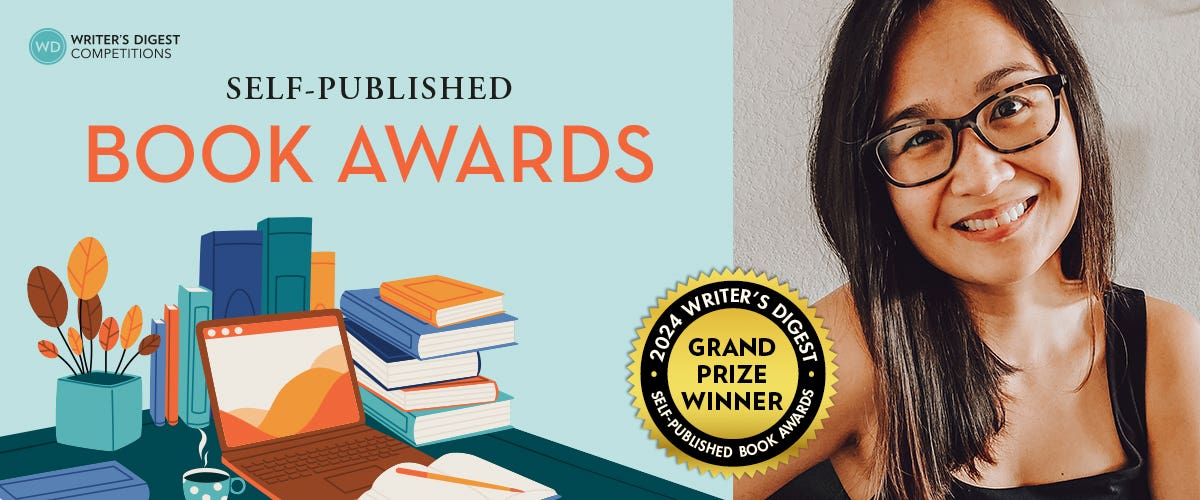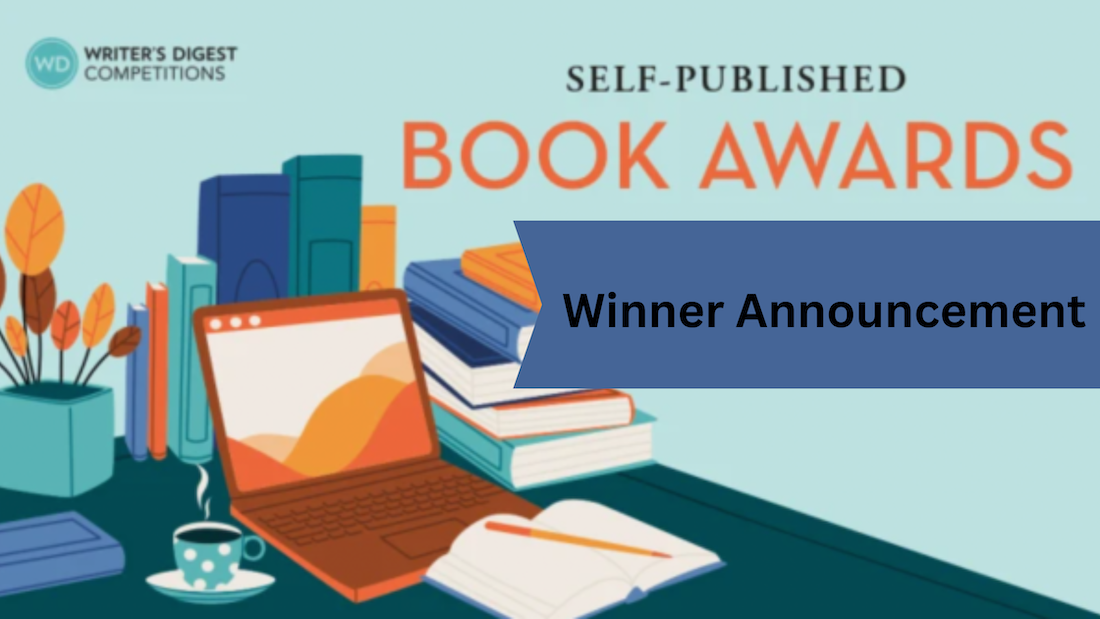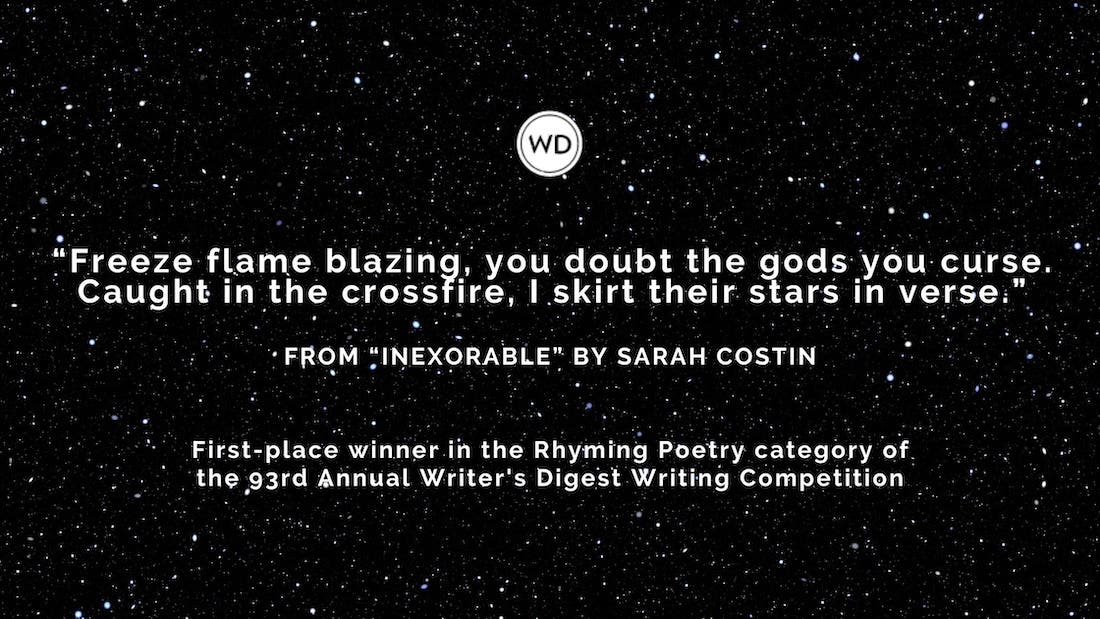Interview with Reena Shah, Winner of the WD 19th Annual Short Short Story Competition
Read an interview with Reena Shah, winner of the 19th Annual WD Short Short Story Competition.
Reena Shah feeds the subconscious level of her brain that she uses to write by remaining mindful and present of the everyday moments of her life. Even when going through her daily tasks, Shah makes an effort to remain aware of the moment so that when she sits down to write, she is ready to get lost in her imagination without distraction.
Inspired by her visits to her grandmother in a nursing home, Shah penned the 850-word flash fiction piece “Hari Om Senior Center.” The story bested over 3,500 other entries to win the 19th Annual Writer’s Digest Short Short Story Competition. Shah’s prizes include $3,000 and a trip to the Writer’s Digest Annual Conference in New York City.
Shah chatted with Writer’s Digest from Costa Rica, where she is living with her husband and two sons on a one-year leave of absence from her job as an elementary school teacher. Shah revealed her secrets to writing every day and how she feeds her creative brain.
Can you describe “Hari Om Senior Center” for our readers?
It’s a story about a woman living in a nursing home who is angry at what she’s expected to be like and decides to misbehave. This woman is in an environment she doesn’t want to be in, so she tries to test her boundaries in a way she possibly never has before.
What was the inspiration behind “Hari Om Senior Center”?
When my family decided to put my grandmother in a nursing home, I was fascinated by all of these different kinds of nursing homes based on ethnicity—nursing homes for people who are Jewish, nursing homes for people of Indian descent, nursing homes that are vegetarian—there’s this wide variety of places.
I found that world the first time I went to visit her very fascinating, and at the same time I wondered about my own assumptions, how I presumed my visits would be seen. Particularly how older people are expected to be childlike or innocent in some way. I was also poking at my own assumptions about age and growing old and what that means, and how a person feels when their body is aging and they’re in a place that they hadn’t imagined they’d be in.
I thought the story was really funny! I think the humor is one of the story’s best features.
I think of [the main character] as funny when I write in her voice. She’s fighting, and she is bored in this environment and she’s looking to get a rise. She’s looking for life in this place that is very scheduled and she feels that she is treated like a child. She doesn’t have a lot of activities, and the activities that she does have she doesn’t like or finds somewhat insulting. Yet, there’s a shift through the course of the story. Her feelings toward where she is and being alive are actually more complicated than they appear at first.
Can you tell me what your writing process is like?
I try to write every day. When I say I write every day, I don’t have a word count that I try to hit or anything like that. It’s about showing up and being present in that moment, both when I’m writing and when I’m not writing.
In a lot of ways, having children has helped me do that. Being with kids requires a lot of presence. It’s so easy to focus on something else when they’re playing, or when doing the dishes or some other mindless task. I try to train my brain to really be present in those moments because I find that it feeds my subconscious, and that helps my writing.
I’m not an outliner. I just have a voice or a character or a theme that I start with, then I do a lot of visualization and then I write from there. I feel like my first draft is always a messy discovery draft, where I find out who this person is and where they are going. The second draft is about pulling out the emotional points and why the characters do what they do. I feel like each draft is another layer of discovery for me.
How are you able to write every day?
I’ve been getting a couple of hours every morning while my kids are at school to focus on writing. I also write a lot at night after the kids go to sleep. I really try to put my phone aside and minimize any email on my computer. Every time I get distracted, I set myself back to the beginning.
At the same time, I don’t believe in writing this many words per day. Writing can be a paragraph, working that paragraph, whatever that story needs in that moment in whatever time that you have. Working those chunks is helpful, and I think it creates an urgency in that time. If I give myself those constraints of time, I really focus. I use that time well, or as well as I can.
What else do you write?
I had intended to write fiction, but then I got really interested in this one woman’s life and wrote a biography [on the Indian dancer Kumudini Lakhia]. I have written articles, but my main focus is on short stories.
What makes for a good flash fiction piece?
I think flash fiction is hard. Most of my stories are longer, in the 5,000 to 6,000-word range. What makes a good flash fiction piece is taking a character or situation and very very very efficiently developing that character’s situation to a strong emotional point—there’s only so much plot that can happen in a flash fiction piece. It’s not so much about what happens, but about how characters develop and the chance for emotional surprise.
When did you know you wanted to be a writer?
I’ve been writing since I was a teenager. I wrote angst-filled poetry as an escape form being a teenager. I’ve always been writing, but I don’t know if I really considered myself a writer until later, once I had my first child. It helped me prioritize in a lot of ways and I discovered that the thing that I wanted to do in the time that I had was focus on writing. I felt like it was something that was completely mine. Motherhood is beautiful, wonderful and also can also be self-abdicating because you’re constantly giving. The time that I was writing fiction was a time that I could be myself and was also mine to lose myself. I feel like when I’m writing, I’m trying not to think about myself. At my best moments, I try to escape into my imagination. Especially in the early days of motherhood, that was really helpful.
What do you want your writing to accomplish? Why do you write?
I write because I feel compelled. For many years, even though I got an MFA when I was younger, I didn’t necessarily consider myself a writer, but I’ve always written. I always felt compelled to follow a character or a story. I call it a process of willful disorientation. That feeling, that process of discovery is the goal for me as a writer. When I can get to that place, when I feel like I’m discovering my characters and my plot and their actions and their thoughts, I feel like then I’m taking the reader somewhere as well, as opposed to trying to manipulate my characters. As a reader, those are the kinds of books I appreciate most.
Can you tell me more about your MFA program?
I got my MFA when I was quite young, when I was 22. It was at New York University in fiction.
Have an amazing story idea, but need to learn the basics of how to write a book? WD University's Fundamentals of Fiction will take you through all of the basics of writing a novel including how important it is to choose a great setting, how to build characters, what point of view you should choose, how to write great dialogue, and more. Register today!
About Cassandra Lipp
Cassandra Lipp is managing editor of Writer's Digest. She is the author of Queen City Records, which tells the stories behind the indie record shops of Cincinnati and Northern Kentucky. Her work has appeared in Greener Pastures, The Belladonna, Little Old Lady, Points in Case, and Ohio's Best Emerging Poets 2019. Follow her on Twitter @Cassie000000.








